Managing Stress with Nutrition: A Path to Inner Calm
Stress has become a constant companion in modern life, often wreaking havoc on both our mental and physical health. From tight work deadlines to personal challenges, stress can feel overwhelming. However, what if the key to managing stress lies on your plate? Nutrition can play a pivotal role in calming your mind and fortifying your body against the toll stress takes.


In today's fast-paced world, managing stress effectively is crucial for maintaining overall health and well-being. Stress can significantly impact our bodies, leading to various health issues, including anxiety, weakened immune function, and digestive problems. However, the good news is that specific foods and mindful habits can help alleviate these stressors. Incorporating calming foods such as leafy greens, berries, and fatty fish into your diet provides essential nutrients that support brain health. Adaptogens like ashwagandha and rhodiola can also help balance stress levels. Additionally, mindfulness practices, including meditation and yoga, nurture a calm mind. To combat stress naturally, consider scheduling a session to explore stress management through nutrition and lifestyle changes, including a personalized stress-relief meal plan. Embracing these strategies can empower you to navigate life's challenges with greater resilience and tranquility.
The Effects of Stress on the Body
When you're stressed, your body initiates a cascade of physiological responses known as the "fight or flight" response. This involves the release of hormones like cortisol and adrenaline, which prepare your body to handle perceived threats. While this response is beneficial in short bursts, prolonged activation can lead to:
Increased Inflammation: Chronic stress promotes inflammation, which is linked to conditions like heart disease, diabetes, and autoimmune disorders.
Weakened Immune System: Stress can suppress the immune system, making you more susceptible to infections.
Digestive Issues: Stress can disrupt digestion, leading to problems like bloating, irritable bowel syndrome (IBS), or acid reflux.
Hormonal Imbalances: Prolonged stress affects hormones like insulin and sex hormones, potentially leading to weight gain, infertility, and mood swings.
Mental Health Concerns: Chronic stress is a significant contributor to anxiety, depression, and cognitive decline.
Nutrition: Your Ally in Stress Management
The foods you consume play a crucial role in how your body handles stress. Nutrients from food can influence the production of stress hormones, support the nervous system, and provide energy to manage daily challenges.
Calming Foods for Stress Relief
Omega-3 Fatty Acids:
Found in fatty fish like salmon, mackerel, walnuts, and flaxseeds, omega-3s reduce inflammation and support brain health, helping to manage stress-related mood swings.
Magnesium-Rich Foods:
Magnesium, often referred to as nature's tranquilizer, can help relax muscles and reduce stress. Include spinach, almonds, avocados, and dark chocolate in your diet.
Complex Carbohydrates:
Whole grains, quinoa, and oats help stabilize blood sugar levels and promote the production of serotonin, the feel-good neurotransmitter.
Fermented Foods:
Yogurt, kimchi, sauerkraut, and kefir support gut health. A healthy gut produces more serotonin, which can improve mood and reduce stress.
Vitamin C-Rich Foods:
Citrus fruits, strawberries, bell peppers, and broccoli can lower cortisol levels and boost the immune system.
Herbal Teas:
Chamomile, peppermint, and green tea contain compounds that promote relaxation and reduce anxiety.
Adaptogens: Nature's Stress Relievers
Adaptogens are natural substances that help the body adapt to stress and restore balance. These herbs and plants have been used for centuries in traditional medicine.
Ashwagandha: Known for its ability to lower cortisol and improve resilience to stress.
Rhodiola Rosea: Enhances energy and reduces fatigue during stressful times.
Tulsi (Holy Basil): Reduces stress-related symptoms and supports overall well-being.
Ginseng: Improves mental clarity and energy levels.
Maca Root: Balances hormones and boosts stamina.
Incorporating adaptogens into your diet can be as simple as adding them to smoothies, teas, or meals.
Mindfulness Practices to Complement Nutrition
Nutrition is only one piece of the puzzle. Mindfulness and lifestyle practices can significantly enhance the stress-relieving benefits of a healthy diet.
Mindful Eating:
Slow down during meals to savor each bite. This practice improves digestion and helps you stay present, reducing stress.
Meditation and Deep Breathing:
Spend 10-15 minutes daily in meditation or practice deep breathing to calm the nervous system and reduce cortisol levels.
Exercise:
Physical activity releases endorphins, the body's natural stress relievers. Choose activities you enjoy, such as walking, yoga, or dancing.
Adequate Sleep:
Prioritize 7-9 hours of quality sleep. A well-rested body is better equipped to handle stress.
Connection and Support:
Spend time with loved ones or join a community group. Social support is a powerful buffer against stress.
A Stress-Relief Meal Plan
Here’s a sample one-day meal plan to help combat stress:
Breakfast:
Smoothie: Blend spinach, a banana, almond milk, chia seeds, and a teaspoon of ashwagandha powder.
Whole-grain toast with avocado and a sprinkle of hemp seeds.
Mid-Morning Snack:
Handful of mixed nuts (almonds, walnuts, and cashews) and a piece of dark chocolate (70% cocoa or higher).
Lunch:
Grilled salmon or tofu with quinoa and steamed broccoli.
Side salad with mixed greens, cherry tomatoes, cucumber, and olive oil dressing.
Afternoon Snack:
A bowl of yogurt with a drizzle of honey and a few slices of fresh fruit.
Dinner:
Lentil soup with a side of whole-grain bread.
Roasted sweet potatoes and a mix of sautéed vegetables (zucchini, bell peppers, and spinach).
Evening Wind-Down:
Herbal tea (chamomile or peppermint) with a small handful of pumpkin seeds.
Final Thoughts
Managing stress requires a holistic approach that addresses both the mind and body. Nutrition plays a pivotal role in supporting your body during stressful times, providing the nutrients needed to maintain balance and resilience. By incorporating calming foods, adaptogens, and mindfulness practices, you can create a robust defense against stress.
Remember, lasting change starts with small, consistent steps. If you're looking for personalized guidance, consider scheduling a session to learn how to manage stress naturally through nutrition and lifestyle changes. Together, we can craft a plan that empowers you to live a calmer, healthier, and more balanced life.
Enroll in my 1-on-1 health coaching program today and take the first step toward a vibrant and balanced life. WatsApp me on +91 7217619967 to have a ZERO SESSION absolutely FREE!!
Nimmisha Jyoti
Nutritionist, Certified Integrated Medicine Practitioner, Health Coach & Wellness Mentor
Disclaimer:
The information provided on NutrifyTheWorld blog is for educational and informational purposes only. It is not intended as a substitute for professional medical advice, diagnosis, or treatment. Always seek the advice of your physician or other qualified health provider with any questions you may have regarding a medical condition. Never disregard professional medical advice or delay in seeking it because of something you have read on NutrifyTheWorld blog. The opinions expressed by the experts in this article are their own and do not necessarily reflect the views of NutrifyTheWorld or its affiliates. Product recommendations are based on research and personal experiences, but individual results may vary. Before using any product mentioned on NutrifyTheWorld blog, please read the label and consult with a healthcare professional to ensure it is suitable for your specific needs and conditions. We do not endorse or promote any specific brand or product mentioned on NutrifyTheWorld blog. Any reliance you place on the information provided is at your own risk. NutrifyTheWorld shall not be liable for any loss or damage arising from the use of information on its blog.


